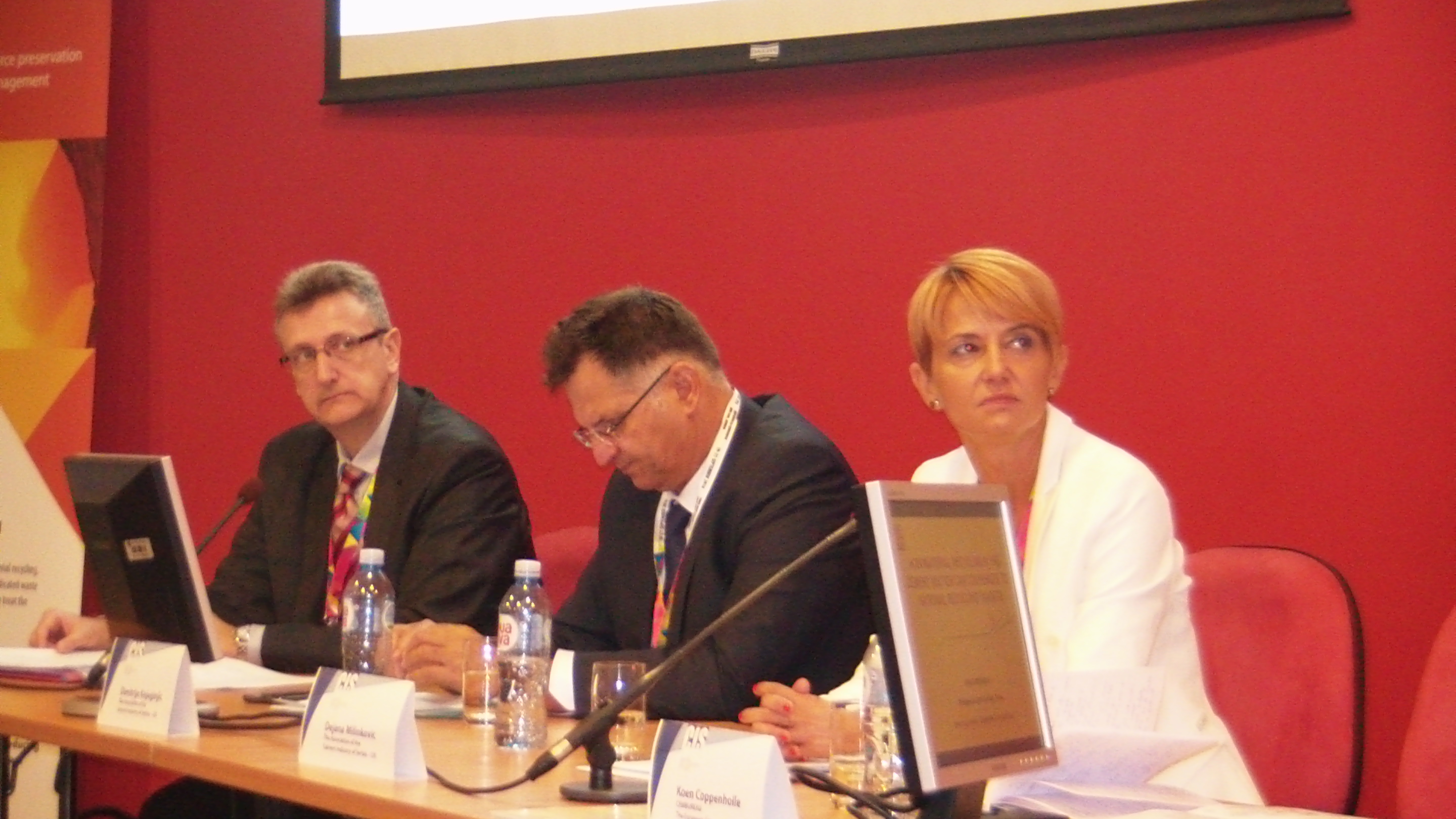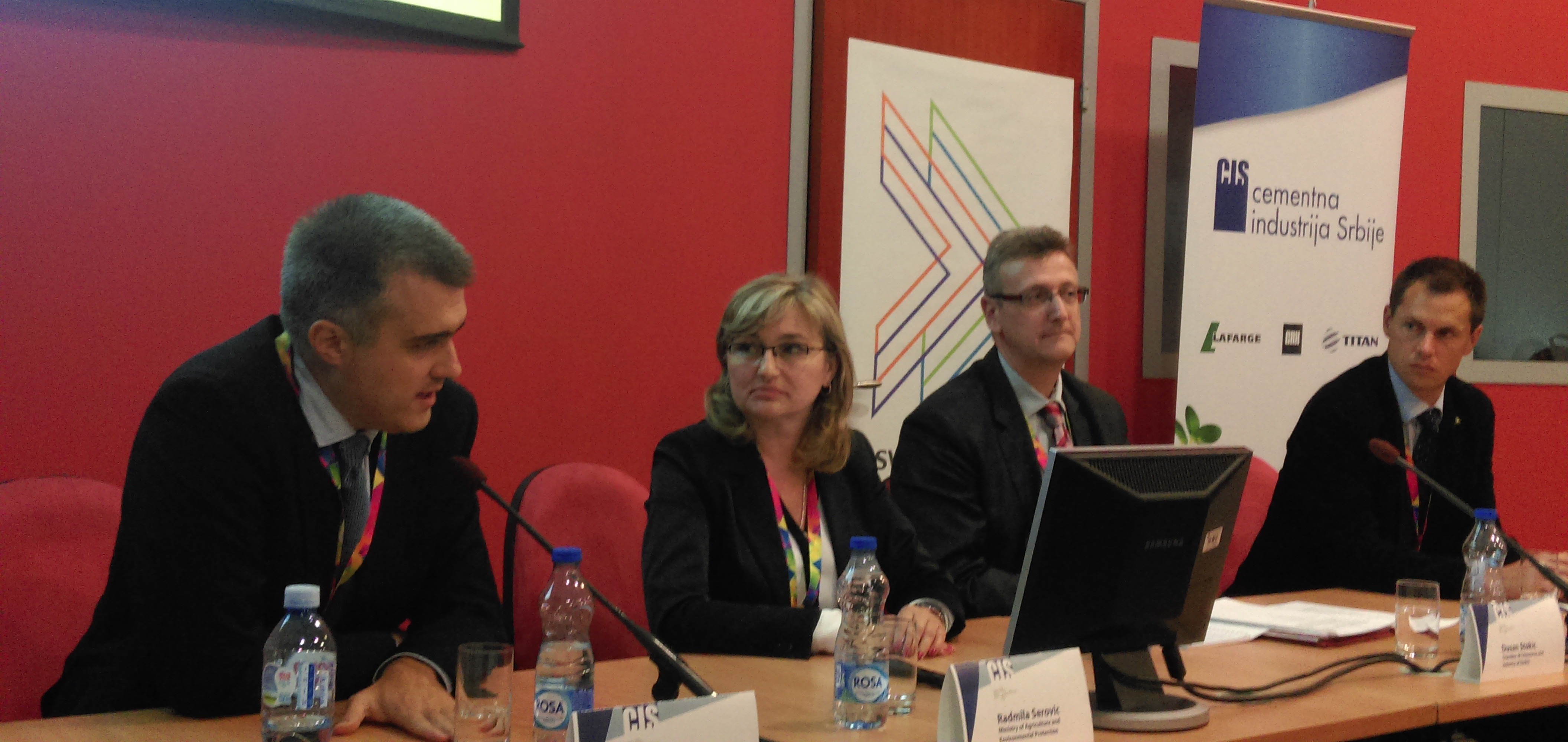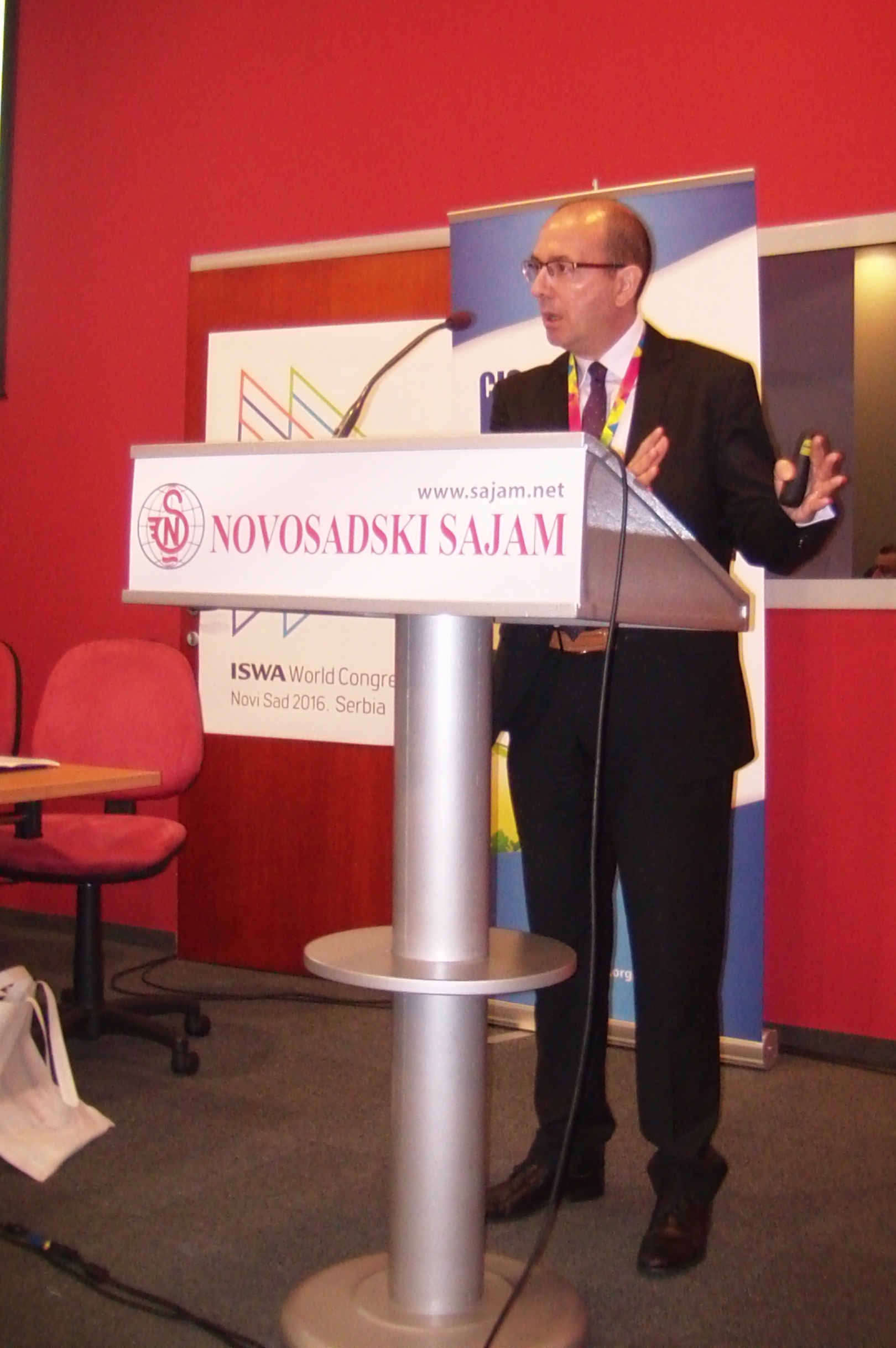Representatives of the Cement Industry of Serbia (CIS) presented solutions for the preservation of natural resources and responsible waste management at the congress of the International Association for Waste Management (ISWA) in Novi Sad, and the important role of co-processing in cement kilns in the development of modern waste management in Serbia.

Presentation was opened by Dimitrije Knjeginjić, President of the Assembly and Dejan Milinković, director of CIS. Koen Coppenholle, executive director of the European Cement Association (CEMBUREAU) presented examples of good practice from EU countries, as well as the achievements of co-processing in the EU28 in 2014, while Juraj Čiz, the representative og Ecorec and Georgi Tagarinski, business development manager for the company Green Energy Alternative Assets, transferred practical experiences from Slovakia and Bulgaria, stressing the importance of co-processing in the circular economy. Radmila Šerović, head of the Department of Waste Management at the Ministry of Agriculture and Environmental Protection spoke about the development plans in a national waste management strategy, the objectives and economic instruments to achieve them.
“We believe that the Serbian cement industry have an important role in the development of modern waste management and it should be recognised as a reliable partner in solving local and regional waste management challenges. As a country with almost 3,600 landfills with the daily average production of 0.87 kg of waste per capita, Serbia needs an effective solution to this problem. Cement manufacturers in Serbia today co-processed nearly 50,000 tons of waste per year as an energy source and about 320,000 tons of waste as a substitute for natural raw materials and are willing to learn from the developed countries like those from the EU about the solutions for the disposal of significant quantities of different types of waste in a safe, secure and controlled way, without negative consequences for the environment”, said Dejan Milinković, director of the Association of Cement industry of Serbia.

The use of alternative fuels and raw materials by co-processing in cement plants brings multiple benefits to both the cement industry and local communities. In addition to saving natural resources, the use of alternative fuels also reduces investment in new waste management facilities, solves the problems of lack of space for waste disposal, but also offers the possibility of creating new jobs.
